Your Guide to Theatre Education
Double Edge Theatre Company
Stacy Klein (SK) founded Double Edge Theatre Company in 1982, where she is Co-Artistic Director. She received the Doris Duke Performing Artist Award in 2013.
Carlos Uriona (CU) is an actor, puppeteer, and Co-Artistic Director of Double Edge. Before joining Double Edge he founded the award-winning Diablomundo Puppet Theatre, in Argentina.
Matthew Glassman (MG) is an actor, writer, and Co-Artistic Director.
Jeremy Louise Eaton (JLE) is an actor and Director of Double Edge’s training programs.
We give primacy to working with the body not to become athletic or virtuosic, but as a channel for imagination, emotion, the voice, and metaphor.
***
When were Double Edge’s training programs started? When did you join?
SK: I founded Double Edge in 1982. At that time, I trained the whole ensemble. Our training programs began in 1985, when we got our own space in Allston at the Church of St. Luke and Margaret.
CU: I joined in 1996 after beginning a career in Buenos Aires, Argentina, and subsequently deciding to abandon my artistic journey. I came to work on developing Double Edge’s sustainability. But after training for several years—retraining myself as an actor/artist, really—I reengaged with performance until I became the ensemble leader.
MG: I began my training at Double Edge in 2000 in a Consortium led by Double Edge and Gardzienice in Poland. After years of apprenticeship, I began leading and developing the training with Stacy and Carlos.
JLE: I joined the company in 2004.
What does Double Edge's program offer potential students?
JLE: A chance to find, which requires allowing yourself to be lost. The chance to define yourself and how you want to grow not based on a programmatic criteria but on your own criteria. That criteria needs to be found through the process and not pre-determined or based on someone else in the same grouping or on what you thought you knew about your potential or your limits before you started. Also, a special context in being at our farm center in Western MA; in a rural setting where contact with the natural world is part of daily life and work.
CU: The concept that an actor is an artist. It offers the possibility of seeing how to be an autonomous actor, or to see the actor’s autonomy, which is experienced through our creative devised method. The training includes learning how to create a group language, and how to deal with relationships on a long-term basis. We try to provide trainees with the ability to do this while learning and being in contact and helping an actual theatre company with an alternative model that works. So it is not only a distant lucubration, but a constant learning through doing with mentors that are showing while doing. A bit like in the eastern tradition of the master and the apprentice.
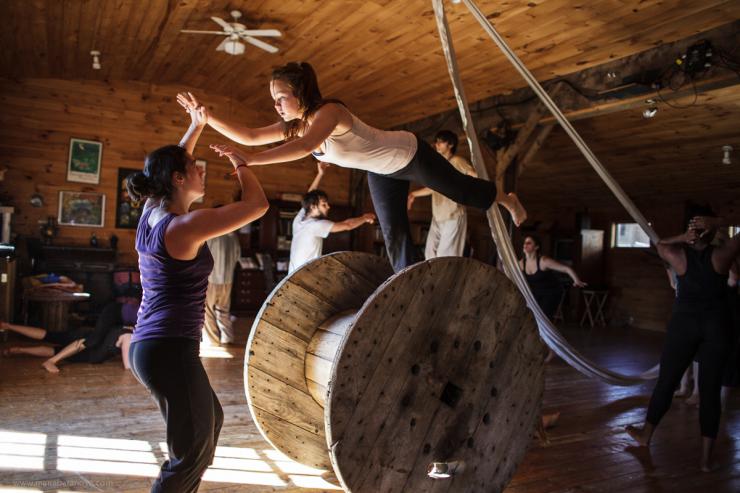
There is a certain wildness missing from arts education: the ability to see life and art as an adventure, not a form; and to explode and rebel against convention.
What makes Double Edge's program different from others?
SK: The main thing is that it is not an institutional program and that beyond the training itself it is geared individually toward the needs of each student and their own particular imagination. The training is about exploding one’s own self-stereotype and gaining the courage to create something totally original. We find this the only road toward sustainability.
MG: It’s really not a school or a conservatory, which I feel is the predominant model. In my fifteen years, each program has felt entirely unique from the last. This is because they are devoted to process—both of the participants and that of the Double Edge ensemble. In a sense the research of both becomes a bit porous. It speaks to the laboratory conditions of Double Edge’s center, The Farm, and this devotion to research versus a form. We privilege sensitizing the self to creativity, the world of the imagination, and collaboration over the mastery of a form or a codification of training. This lies on a spectrum of inquiry, which includes not only aesthetics, but also developing a personal ethos to work, relating to a community, and balancing needs of survival with art.
What are the guiding principles of the program?
JLE: Rebellion: first and last against oneself. Using our whole selves: body, imagination, intellect, spirit. Allowing the unknown to have equal value with the known. Working from a question rather than an answer. Dialogue with our deepest intimate inner selves. Dialogue with the outside, other people in the training, large objects, the natural environment, and the world. Having a strong legacy of mentorship, and a model based on generations of experience and creation, while proposing that each new person explode the norms.
CU: A journey of self-exploration that at the same time constitutes the kernel of the future artistic work. We discover resilience and ways to meet our inner flexibility. Through the exploration of our limits—our fears—we slowly grow the capacity to establish a dialogue with change, which in turn becomes a foundation for our artistic work.
MG: We give primacy to working with the body not to become athletic or virtuosic but as a channel for imagination, emotion, the voice, and metaphor. We believe in long term process seen in martial arts, trades practices like carpentry and electrics, and things that require time and practical research for mastery.
Following that, what's working?
CU: Adaptability and capacity, which is necessary for any theatre undertaking whether in an alternative setting or in a more mainstream one. Hopefully the growth of confidence and trust to confront any type of situation.
JLE: When someone is genuinely shocked by themselves, that is awesome.
What kinds of challenges have you faced? How do you intend to approach them in future?
SK: Our main challenge is funding. Our work and programs have not been tied to convention nor to institutions, therefore it has always been hard to gain enough funding to provide for ourselves. And it is more and more difficult for students with huge university debt to choose to take on this type of activity.
JLE: Intimacy and space are very important to our work. And finding how we preserve those and continue to find them in an authentic way while the programs are gaining huge traction and attracting large numbers of candidates is a real question right now. We want to welcome everyone who wants to work, so how we do that while not enlarging to something resembling a school is another question.
What's missing, in your opinion, from the current education/ training programs available?
SK: There is a certain wildness missing from arts education: the ability to see life and art as an adventure, not a form; and to explode and rebel against convention.
JLE: The space to be lost; to not feel the pressure to have an answer for everything. So many of the emerging artists who come here are very concerned with needing to be right.
CU: The tools and the knowledge to develop work in any context, without being tied to a specific form of work (mainstream, regional theatre etc.), or to a recipe of how to produce work, the ability to avoid falling prisoner to only one model of success or successful artistic lifestyle.
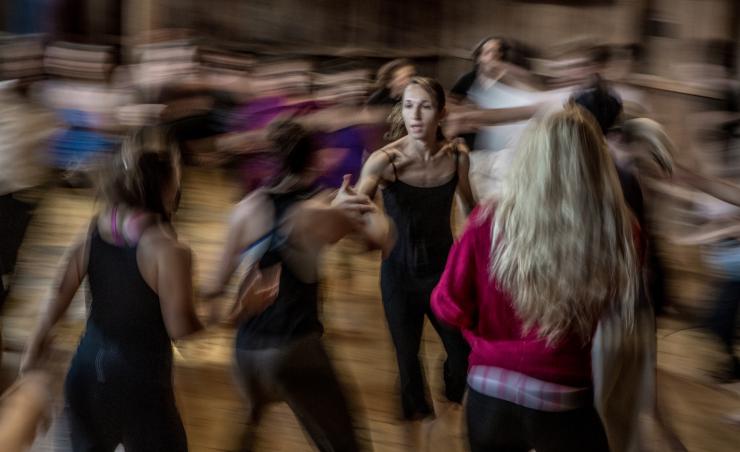
Who do you feel is the ideal candidate? Who are you trying to bring into the Double Edge family?
SK: It’s not that we are trying to bring people in at this point. We are trying to expose different communities to our approach and way of thinking about theatre and culture.
CU: To me the ideal candidate is the person that comes. To come here, where our choices place us so far apart from anything known implies that the person has courage.
JLE: Someone with strong desire to try, to work, to be with themselves and challenge what they find in that process. It’s important that someone is identifying that they are ready and pursuing their desire to work rather than us saying they are ready and can try. This work and process are for anyone to claim and make their own, which requires hard work and dedication. In that way, in one program, we often have an 18-year-old with zero experience and a mid-career artist training side by side with entirely different questions and foundations but the same in that they are working with their own limits. They are both ideal.
What do you hope your trainees do once they complete the program?
SK: We are trying to train students to create their own work as artists. This can vary from acting, design, performing, creating work, site specific, or even other endeavors having little to do with theatre. Many people come to Double Edge interested in farming and growing food in different ways or building communities.
JLE: I hope they take the presence, creativity, and courage they find in the training and apply it to anything in the world that they believe in.
CU: They can develop their work as an artist, and thus they can apply that creativity to find a way of life that is fulfilling.
Success stories?
MG: We had one actor from Albuquerque, NM. Her application said she was seventy-nine years of age, and that she had a couple of heart surgeries. She was accepted to our three-month immersion program which consists of daily training and a very “immersive” schedule; demanding on the body and the mind and all. We have always had a diversity of ages, body types, and physical abilities, but she was older and in a group of folks who were mostly in their twenties. She was amazing. Not because she was in good shape—she wasn’t, really. But she worked with her limits and modeled the spirit of work and engagement that leads to artistic revelation. The day of the departure, she wept in joy and gratitude for the program and admitted that she lied. She was actually eighty-four but was passionate about taking part. She was afraid we wouldn’t have accepted her. She has since appeared on Breaking Bad and works regularly on stage and screen.

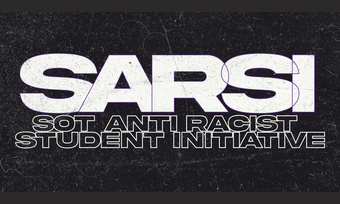




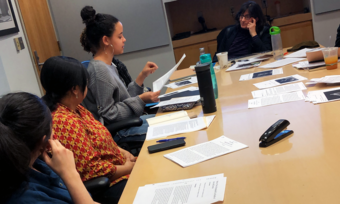


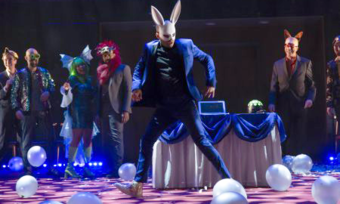

Comments
The article is just the start of the conversation—we want to know what you think about this subject, too! HowlRound is a space for knowledge-sharing, and we welcome spirited, thoughtful, and on-topic dialogue. Find our full comments policy here
I used to live in Northampton, MA, and I passed by The Farm several times. They've been on my radar for a long time and are a model for what I hope to someday create. The approach and work described here is inspiring. Thank you for this interview. *Someday,* perhaps, I'll have the privilege of visiting and training at Double Edge.